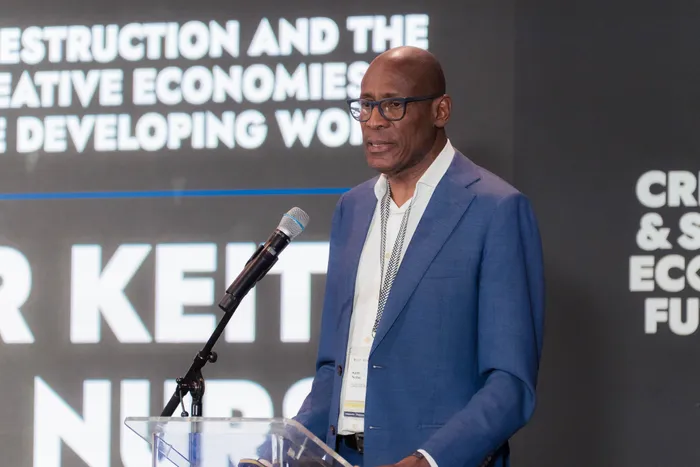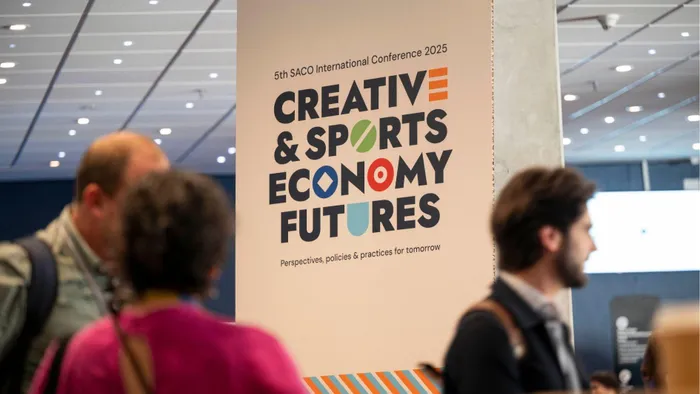Innovation, investment in Africa's creative economies take centre stage at SACO

At the SACO Conference, Dr Keith Nurse emphasises the importance of investment and strategic policy-making in shaping Africa’s creative future.
Image: Supplied
COLLEGE of Science, Technology & Applied Arts President in Trinidad and Tobago Dr Keith Nurse used his keynote at the 5th South African Cultural Observatory (SACO) International Conference, the first to be held in the city, to challenge attendees to envision a transformative future driven by innovation and cultural capital.
His discourse centred on “Creative Destruction and the Future of Creative Economies in Africa and the Developing World”, challenging attendees to envision a transformative future driven.
He told the gathering that artificial intelligence (AI) is only one of the key technologies in the digital industrialisation process. There is the Internet of Things, e-commerce, Fintech, blockchain, data localisation, and the list goes on.

The SACO Conference opens doors to new ideas and strategies for enhancing Africa’s creative economy.
Image: Armand Hough / Independent Newspapers
“If in your economy or society, you are underinvesting in any of these key areas, you are way behind the curve. And that’s the case for most developing economies, most middle-income economies, with a few exceptions,” Nurse said.
He said that in recent years, he has been reconceptualising how to measure the creative economy and has a simple and effective approach.
“I call it, follow the money principle. Where is the money being made? That’s where you need to look,” Nurse said.
"The creative economy is now a Fintech-driven industry. I’ve seen our understanding of the sector move from creative arts, where we used to call it arts administration, then it was creative industries, then creative economy.”
Nurse said that the creative sector has experienced the highest level of creative destruction of all sectors in the global economy.
He has been monitoring financing, as access to finance is a critical factor in the creative economy, significantly impacting competitiveness and success.
Nurse also noted a need to think about new measurement tools that focus on the digital economy because the digital economy is now outpacing the so-called material economy.
“The global economy is being dematerialised. And really, for developing economies in Africa, we have three scenarios - I call them status quo, reversal, and innovation. If it is, we are indeed focused on transformation and innovation, then it requires us to do a number of things.
“It requires us to improve our investment, and this requires us to do better data capture and do more targeted facilitation for creative entrepreneurs and strengthen our policy environment accordingly,” Nurse explained.
“The key point is this: policies by themselves are not going to transform the sector. You must have a strategy.”
Cape Times